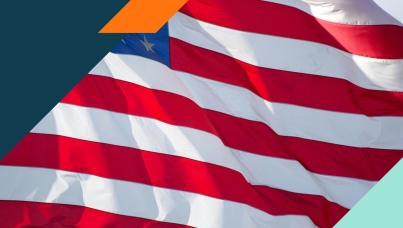Oceana Offshore Drilling Survey
Washington, DC, July 10, 2024—A new poll conducted by Ipsos on behalf of Oceana, Nearly two thirds of registered voters support elected officials protecting U.S. coastlines from new offshore drilling (64%) and transitioning from offshore drilling to renewable energy as soon as possible (63%). Support for elected officials protecting coastlines is significantly higher among those ages 18-29 (70%) and 30-44 (73%) than their older counterparts.
The survey also evaluated perceptions on plastic usage, North Atlantic right whales, and seafood traceability:
75% of registered voters support national policies that would reduce single-use plastic and 84% support increasing the use of reusable packaging and foodware.
Most registered voters believe that North Atlantic right whales should be protected from human-caused threats to help prevent their extinction (86%) and four in five (81%) support the U.S. government enacting policies that would help prevent the whales from going extinct.
85% of registered voters agree that seafood should be traceable from the fishing boat to the dinner plate, and 91% agree that seafood caught using human trafficking and slave labor should not be bought or sold in the U.S.
About the Study
This poll was conducted June 28-30, 2024 by Ipsos using the KnowledgePanel® on behalf of Oceana. This poll is based on a representative sample of 1,053 U.S. residents, age 18 or older, who are currently registered to vote. This sample includes 324 Republicans, 362 Democrats, and 301 independents.
The study was conducted in English. The data were weighted to adjust for gender by age, race/ethnicity, Census region, metropolitan status, education, household income, and party ID. Party ID benchmarks are from the 2023 NPORS annual survey. The demographic benchmarks came from the 2023 March Supplement of the Current Population Survey (CPS). The weighting categories were as follows:
The margin of sampling error is plus or minus 3.1 percentage points at the 95% confidence level, for results based on the entire sample of adults. The margin of error takes into account the design effect, which was 1.06 for all adults. The margin of sampling error is plus or minus 5.6 percentage points at the 95% confidence level for Republicans, plus or minus 5.3 percentage points at the 95% confidence level for Democrats, and plus or minus 5.9 percentage points at the 95% confidence level for independents. The design effect is 1.05 for Republicans, 1.06 for Democrats, and 1.08 for independents.
In our reporting of the findings, percentage points are rounded off to the nearest whole number. As a result, percentages in a given table column may total slightly higher or lower than 100%. In questions that permit multiple responses, columns may total substantially more than 100%, depending on the number of different responses offered by each respondent.
For more information on this news release, please contact:
Chris Jackson
Senior Vice President, US
Public Affairs
+1 202 420-2025
[email protected]
Annaleise Azevedo Lohr
Director, U.S.
Public Affairs
[email protected]
About Ipsos
Ipsos is one of the largest market research and polling companies globally, operating in 90 markets and employing over 18,000 people.
Our passionately curious research professionals, analysts and scientists have built unique multi-specialist capabilities that provide true understanding and powerful insights into the actions, opinions and motivations of citizens, consumers, patients, customers or employees. Our 75 solutions are based on primary data from our surveys, social media monitoring, and qualitative or observational techniques.
Our tagline "Game Changers" sums up our ambition to help our 5,000 customers move confidently through a rapidly changing world.
Founded in France in 1975, Ipsos has been listed on the Euronext Paris since July 1, 1999. The company is part of the SBF 120 and Mid-60 indices and is eligible for the Deferred Settlement Service (SRD).ISIN code FR0000073298, Reuters ISOS.PA, Bloomberg IPS:FP



